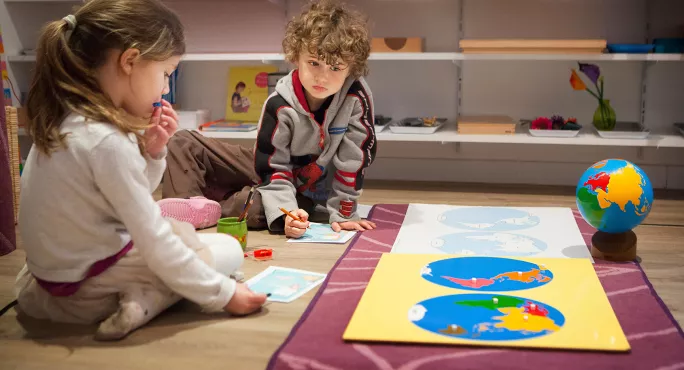The government is putting £6.5 million into eight projects focused on boosting children’s communication skills in the early years.
Improved training for early years professionals, family reading sessions and local parenting pop-ups are among the ways in which families will be helped to ensure preschool children have the language skills they need.
Social mobility: £120m pledged to tackle early years 'word gap'
Quick read: More children are struggling with vocabulary, teachers say
MPs call: Children with speech difficulties need 'urgent action'
The support is part of the pledge made by education secretary Damian Hinds, to halve the proportion of children leaving Reception year without the expected language skills, by 2028.
The projects will cover some of the most disadvantaged areas of the country.
Health visitors and early years staff will also be trained to identify children with poor language and communication skills to make sure the right support is in place so they don’t fall behind.
Education secretary Damian Hinds said: “Ask any parent and they want their child to have the best start in life. But we know that those from a disadvantaged background often start school already behind when it comes to communication and language development.
“This multi-million-pound investment will provide better support to families in some of the most deprived areas of the country. No one is born knowing how to be a mum or a dad and parenting does not come with a manual, I want to support families with hints and tips to propel their child’s learning so they can go on to reach their full potential, whatever their background.”
The funding is part of the Department for Education’s £8.5m early years local government programme, which is improving how local services work together to improve early language, communication and speech outcomes.
The move follows an announcement in February that 1,000 health visitors would be trained to identify children’s early language and communication needs.
The eight projects, covering 27 areas, are:
- Leicester City (with Derby City and Nottingham City) will improve access to existing speech, language and communication initiatives for early years support so that all disadvantaged families receive the same services across the region.
- Wolverhampton (Dudley, Sandwell, Walsall) will work with the National Literacy Trust to help early years teachers, health visitors and speech therapists introduce pop up sessions for parents. The council will also provide tips and tools to use at home.
- Staffordshire (with Stoke-on-Trent) will scale-up successful early learning projects in Stoke and Staffordshire, including the Speak Out project which will trains parents, carers and staff in early communication development. The councils will also work with the National Literacy Trust to offer free advice and information to help parents.
- Luton will build on its successful Flying Start programme that gives parents support from pregnancy to their child’s fifth birthday, prioritising children’s communication and language skills.
- Doncaster (with Barnsley, Rotherham, Sheffield) will work on a collaborative early years vision, which will include plans to train more staff and improve data sharing so the specific needs of every child are met.
- Halton will introduce family reading sessions and will set up the ‘TALK Halton’ to assess 2- to 4-year-olds’ early language needs, and reduce the number of referrals to speech and language therapists by age five.
- Salford (with the 9 other Greater Manchester Combined Authority (GMCA) LAs) will combine expertise across 10 local authorities to support children who are most at risk of falling behind in their early learning.
- Swindon (with Gloucestershire) will support children who are at risk of or display early signs of difficulty in language development through evidence-based early learning interventions, such as the Peep Learning Together Programme.




